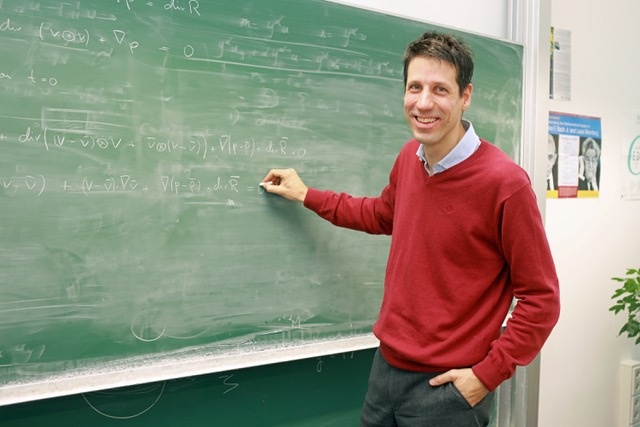László Székelyhidi wins Leibniz Prize
The prize, often called the ‘German Nobel Prize’, is coupled with a 2.5-million euro cash award. Besides the Leipzig-based Hungarian mathematician, ten other scientists of various fields, from American studies through immunology to experimental Solid-state physics were also awarded this year.
15 January, 2018
The Gottfried Wilhelm Leibniz Prize is a programme initiated by the German Research Foundation (Deutsche Forschungsgemeinschaft, DFG) in 1985. Considered as one of the most prestigious scientific prizes in Germany, its mission is to expand the research opportunities of outstanding scientists and to motivate them to support particularly qualified young researchers.
Regarding his work and the prize, László Székelyhidi told mta.hu:
‘My research project is in the area of partial differential equations and, within that, mainly in the mathematical theory of elasticity and hydrodynamic equations. The reasons for the prize highlight my work with the Euler system of equations, the role of which in hydrodynamics is crucial: in 1949 Lars Onsager, later a recipient of the Nobel Prize in Chemistry, formulated a conjecture in connection with the above-mentioned system of equations, which plays a central role in the theory of turbulent fluid flow. Through a theory developed in the past ten years by my colleagues and myself, the conjecture was successfully proved last year.
 László Székelyhidi Source: Universität Leipzig/Swen Reichhold
László Székelyhidi Source: Universität Leipzig/Swen ReichholdThe Leibniz Prize grants immense freedom of research, enabling me in the coming seven years to appropriate funds for a research team (postdoctoral and PhD jobs) without being chained to concrete projects. I am especially happy about the news reaching Hungary. It fills me with hope that the research of partial differential equations will become more popular with young Hungarian mathematicians, and that this field of research will receive proper recognition.’
A report by the German Mathematical Society, including the prize list, is available here.
